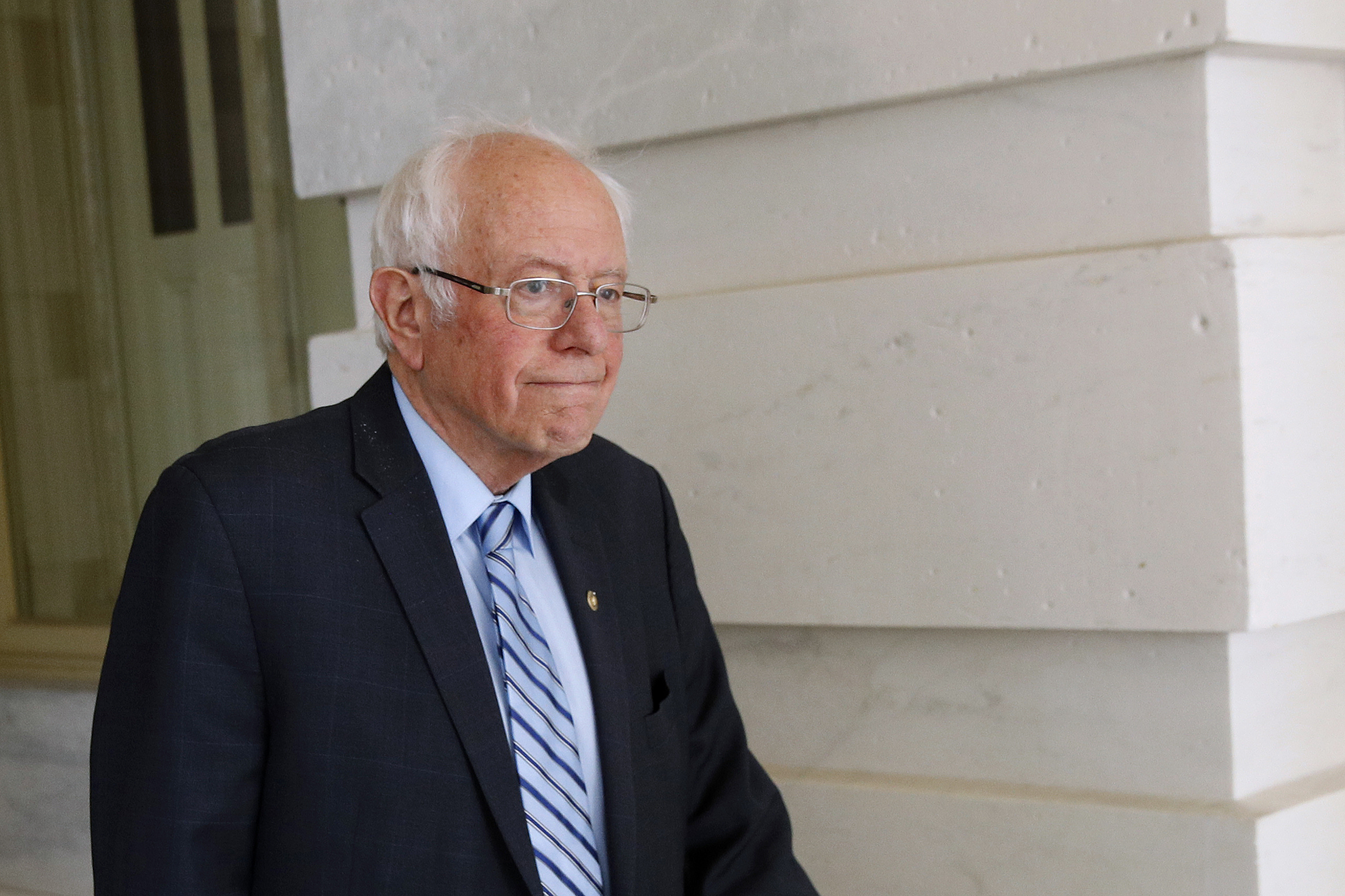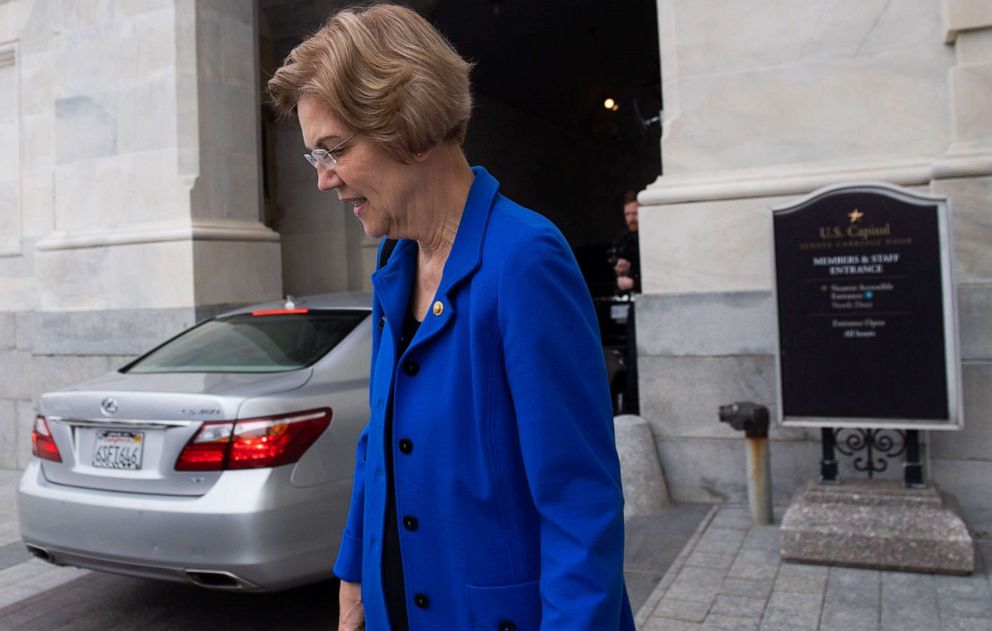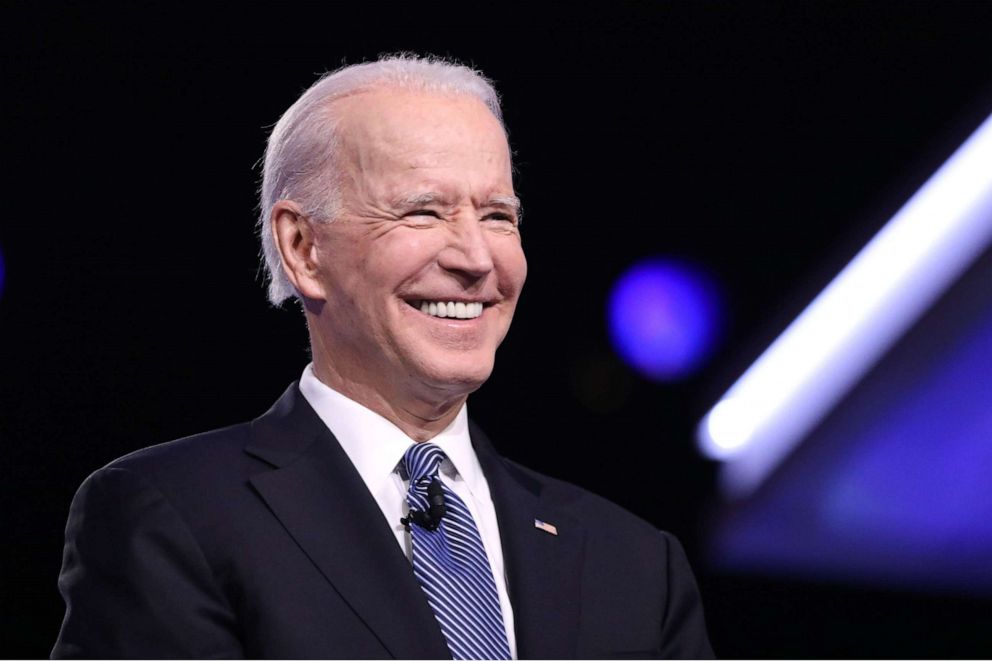The Note: Sanders-Warren wing gets another moment, amid coronavirus crisis
Sander's campaign is signaling that he is clear-eyed about the road ahead.
The TAKE with Rick Klein
Sen. Bernie Sanders' campaign is signaling that he is clear-eyed about the road ahead, with his campaign manager saying he would use the lull in primary voting to have "conversations with supporters to assess his campaign."

But the statement goes on to say that Sanders will be focused on the national emergency around the novel coronavirus -- specifically "ensuring that we take care of working people and the most vulnerable."
It's largely an accident of the calendar that former Vice President Joe Biden is emerging as the all-but-certain Democratic nominee at the same time that American society has been upended.
That coincidence is a potential opportunity for the progressive moment, with once-in-a-lifetime-level federal responses being debated in Washington.
Sen. Elizabeth Warren -- still officially neutral in the presidential race -- has been taking a leadership role in crafting possible responses. She is proposing ideas like canceling student debt, boosting Social Security and forcing leadership changes at companies that accept bailout funds, as part of what she is calling "meaningful, grassroots relief directly to American families."

With the next giant bailout package being tailored largely by Senate Republicans, Sanders and Warren are likely to be go-to voices when Democrats have their say.
The Trump administration will need Democratic votes in the House as well as the Senate. Progressives could see disappointment turned into opportunity in the days ahead -- particularly if Sanders and Warren work together.
The RUNDOWN with MaryAlice Parks
A virus does not know borders and, in case Americans needed a reminder, a virus is not partisan either.
Two members of Congress, one Republican and one Democrat, from opposite sides of the country, each made public on Wednesday night that they had tested positive for the coronavirus.
Freshman Rep. Ben McAdams of Utah, is the only Democrat in his state’s delegation. He is only 45 years old, still his team said he had a fever and labored breathing. He is now self-quarantining at home.
Across the country, in a very different state, Rep. Mario Diaz-Balart, R-Fla., also said he tested positive.
Both McAdams and Diaz-Balart were on the House floor last week placing votes for the first coronavirus relief legislation.
The two cases underscore the urgency of this moment. While their health is key to inspiring confidence for citizens nationwide, elected officials are at high risk of infection because of their exposure to people and crowds. There are no virtual voting options for members of Congress and so, in the immediate future, any widespread quarantining of members could -- in theory -- impact the passage of legislation too. Big picture: if government officials continue to contract the virus, it could call into question the government’s ability to function at a time when government is needed most.
The TIP with Kendall Karson
Uncertainly may be looming over the remainder of the primary calendar this season, but the drama surrounding the all-important delegate race is dwindling. Biden's position as a heavy favorite to clinch the nomination didn't change from the start of Tuesday's contests to the end, but his sweep across three states -- with margins as large as his -- has its delegate advantages.
The former vice president is currently ahead of Sanders -- with some of Tuesday's delegates still outstanding -- by about 300 delegates, a nearly insurmountable lead and more than Hillary Clinton's edge at this point in the race four years ago. In 2016, roughly 60% of pledged delegates were awarded by the Wisconsin primary on April 5 -- the same point the 2020 contest is at now. After Wisconsin's delegates were allotted, Clinton led Sanders by 250 delegates, about 50 less than Biden is leading by now.

If and when the campaign picks back up in early April, it will be impossible for Sanders to win enough delegates by the end of April, after the Acela primary's delegates are awarded, to clinch the nomination. But for Biden, winning about 83% of the remaining delegates could secure him the nomination.
More likely, with at least six contests being postponed, Biden could earn the title of presumptive nominee by the end of May, if he nets nearly two-thirds of the remaining delegates, or after the contests in June with 45% of the remaining delegates. For Sanders, the path to the nomination is slimmer -- he'll need roughly 83% of the remaining delegates to hit 1,991 by the end of May, or about 60% of the outstanding delegates to claim the top of the ticket by June.
THE PLAYLIST
ABC News' "Start Here" Podcast.Thursday morning's episode features ABC News' Kaylee Hartung, who tells us about her experience in testing positive for COVID-19. Then, ABC News Chief Business and Economics correspondent Rebecca Jarvis explains how the massive stock market losses this year could reshape the economy for years to come. http://apple.co/2HPocUL
ABC News' "Powerhouse Politics" podcast. Former New Jersey Governor and ABC News Contributor Chris Christie told ABC News Political Director Rick Klein and Chief White House Correspondent Jonathan Karl that it's a "good thing" if President Donald Trump believes himself to be a "wartime president" in the fight against the novel coronavirus. https://apple.co/3d7EC6U
WHAT YOU NEED TO KNOW TODAY
Download the ABC News app and select "The Note" as an item of interest to receive the day's sharpest political analysis every weekday.
The Note is a daily ABC News feature that highlights the key political moments of the day ahead. Please check back tomorrow for the latest.




